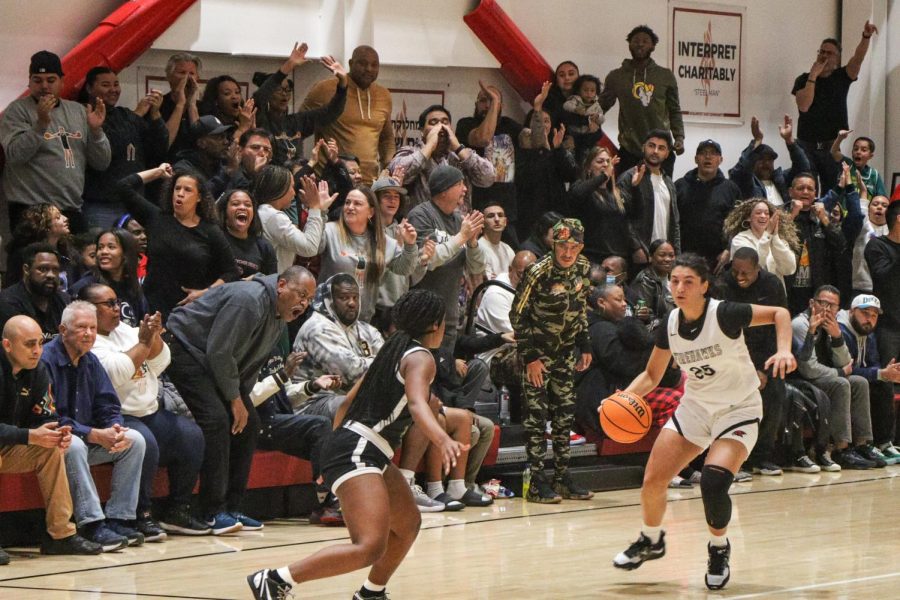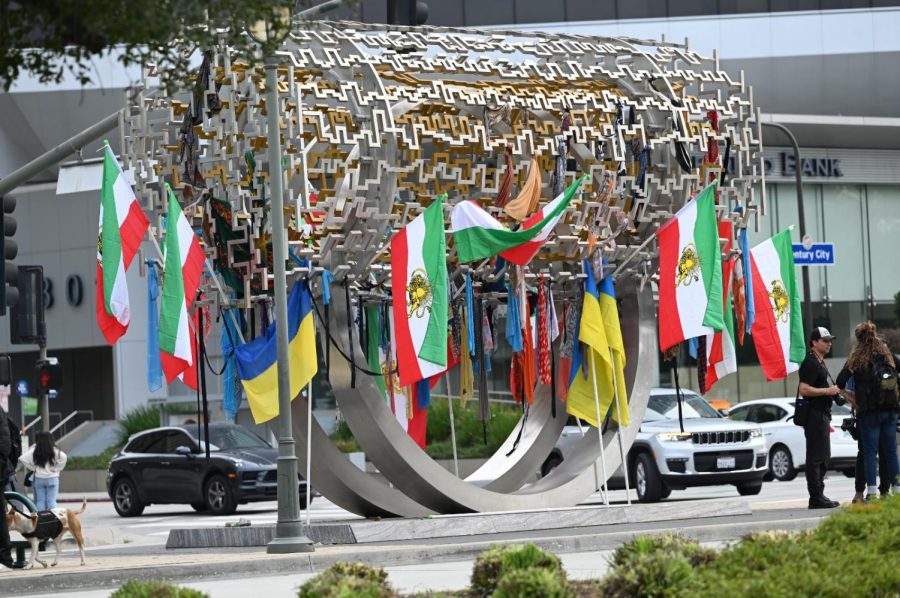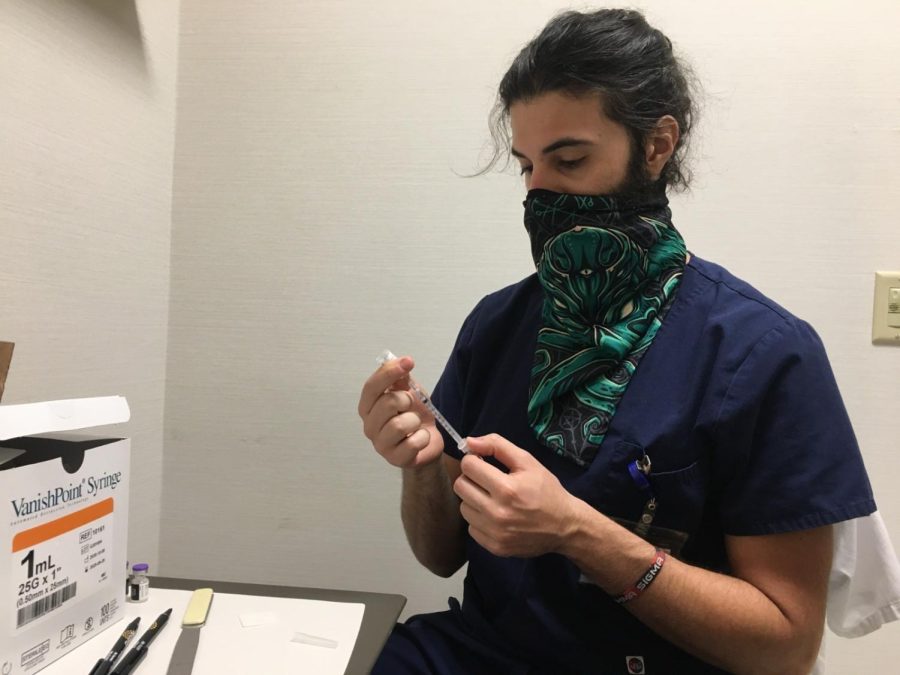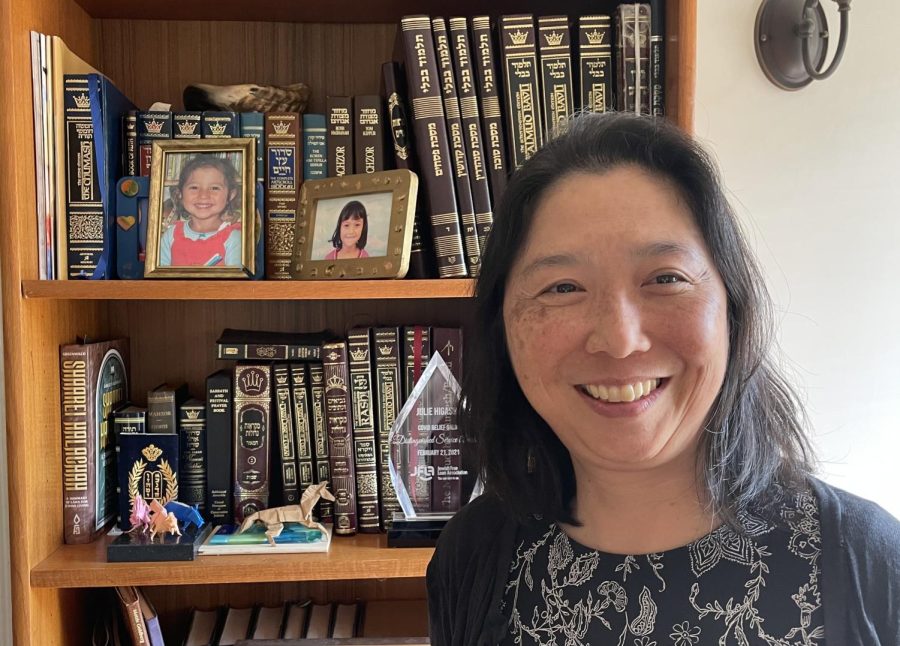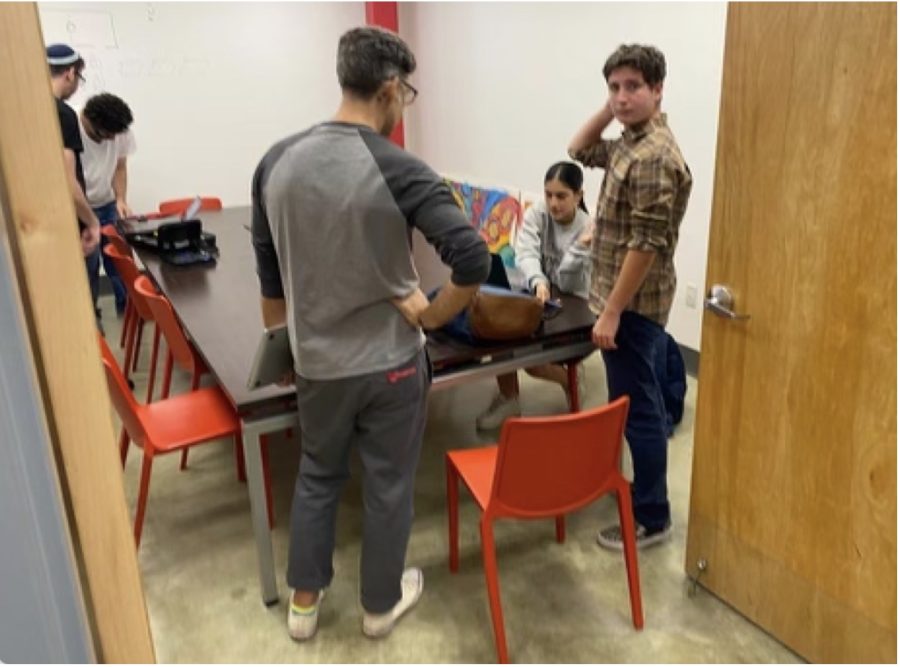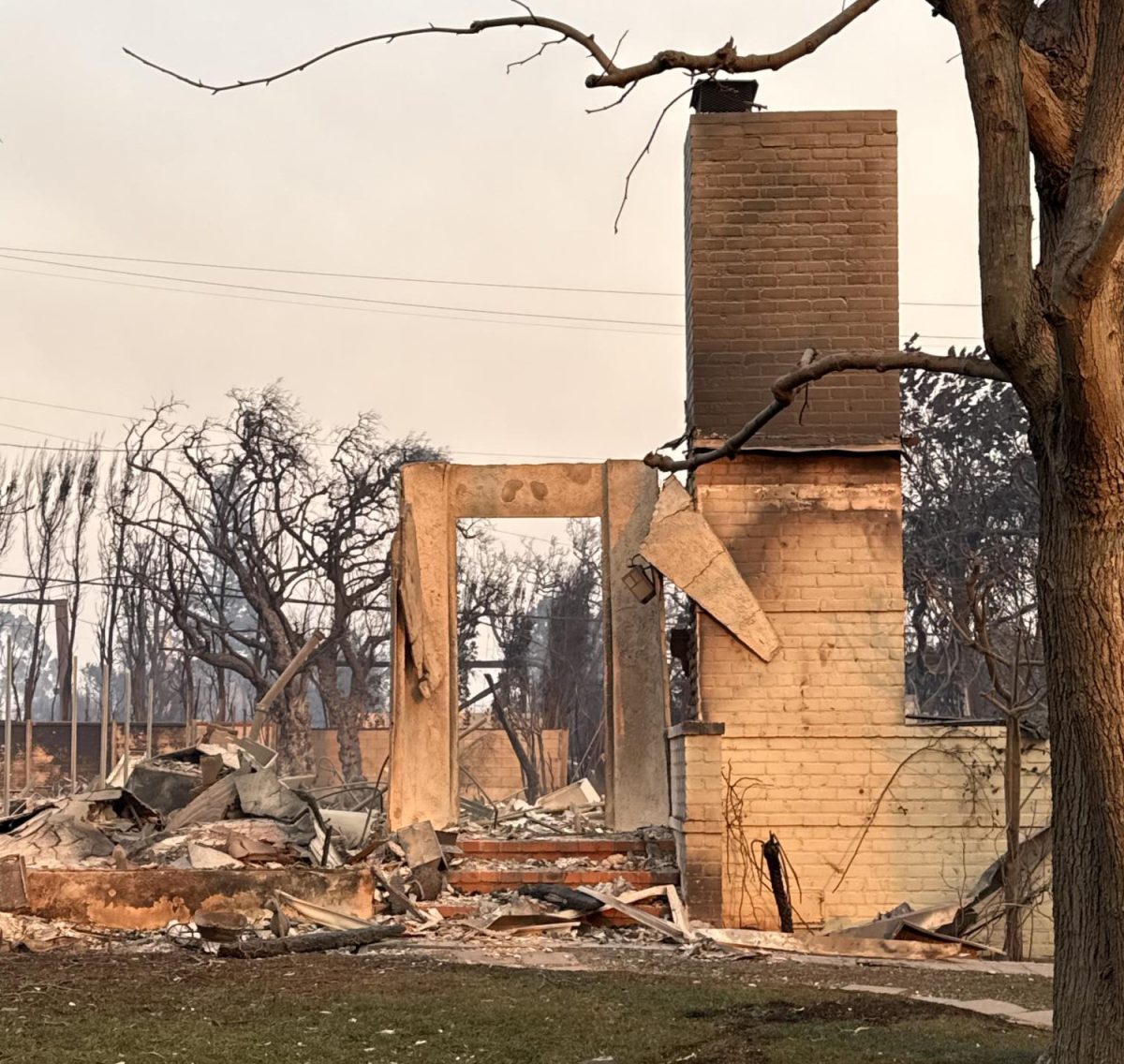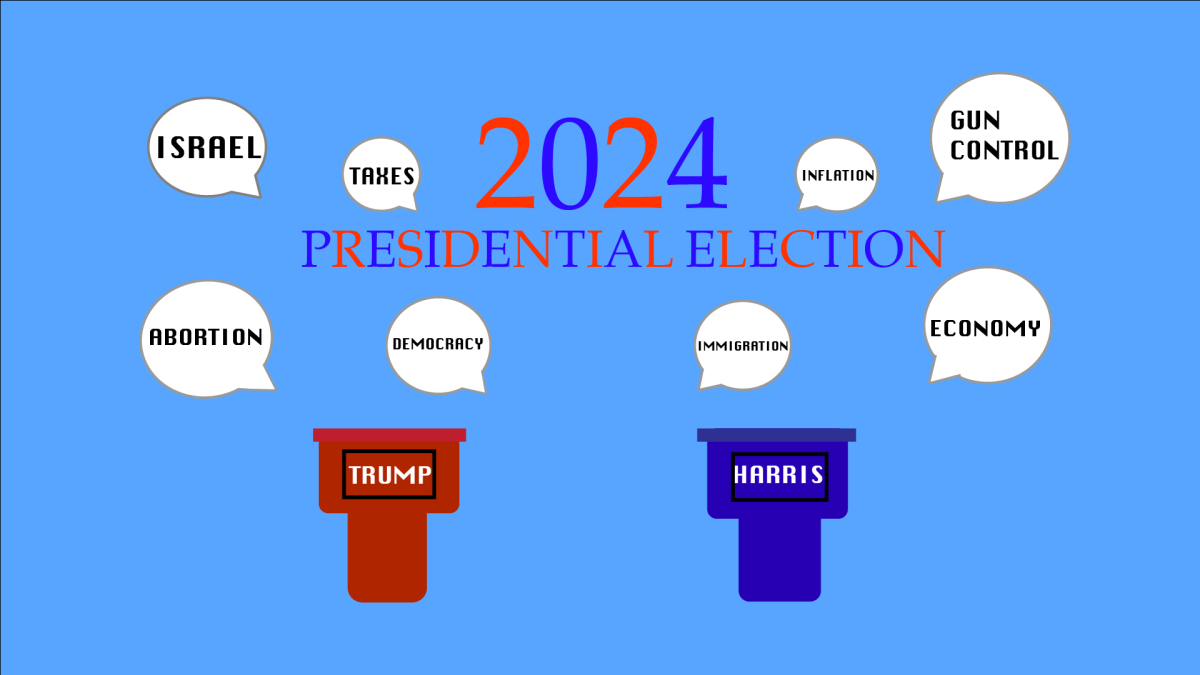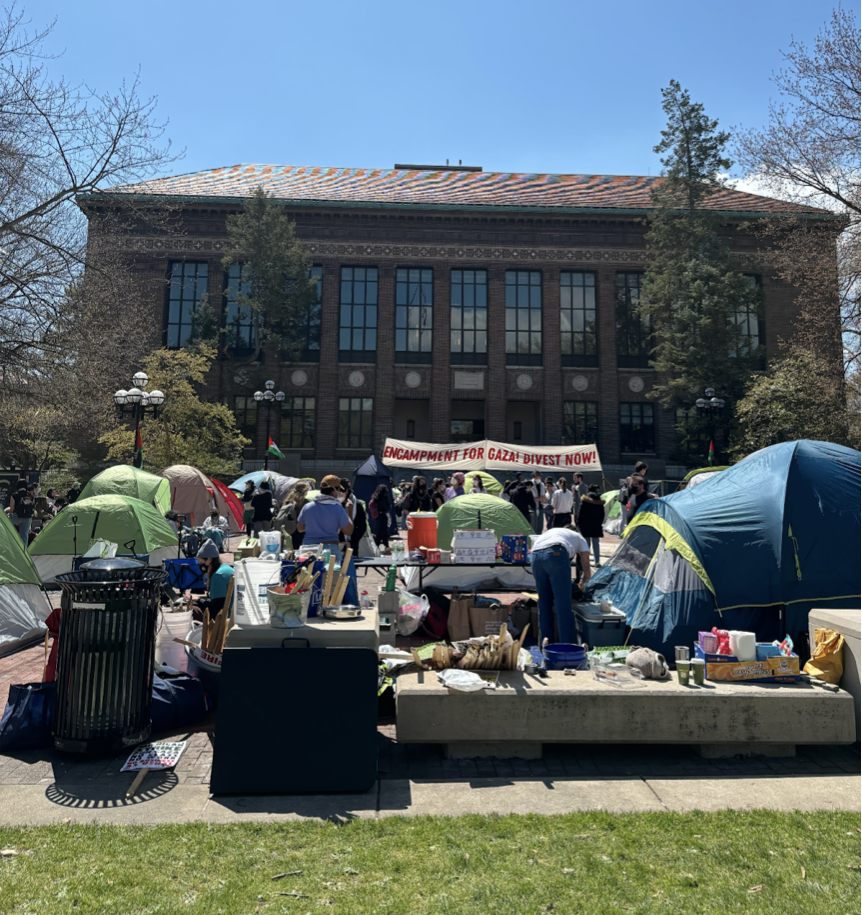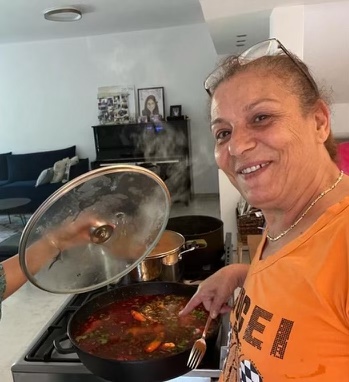A recently issued report by the United Nations Human Rights Council has found that both the militant group Hamas and the state of Israel committed war crimes and violations of international law, due to each group’s actions during the Israeli military operation “Cast Lead” in Gaza last winter.
The report, based on an investigation led by South African judge Richard Goldstone, alleges that Israel was guilty of “willful killing, torture or inhuman treatment, willfully causing great suffering or serious injury to body or health and extensive destruction of property,” (http://www2.ohchr.org/english/bodies/hrcouncil/specialsession/9/docs/UNFFMGC_Report.pdf).
Israel was also found guilty of using human shields, while Hamas was cited for initiating rocket attacks on Israeli cities, which, the report stated, “might amount to crimes against humanity.”
“Israel wholeheartedly rejects the conclusions of this report,” said Shahar Azani, the Consul for Media and Public Diplomacy of the Israeli consulate in Los Angeles, in a telephone interview with The Boiling Point Oct. 9. “The Goldstone report disregards the fact that the terrorist organization Hamas operates from within civilian venues, such as homes, schools and even hospitals.
“The IDF sent out leaflets warning the civilians in Gaza of the locations they would be targeting,” he continued. “The truth is that Israel never targeted civilians…. We will fight in every political and diplomatic area to make sure that this report remains a ‘dead letter.’ We are willing and able to counter this report on every clause.”
Despite the consul’s conviction that Israel can counter the report, it is possible that the state of Israel or certain soldiers or officials could stand trial before the International Court of Justice, as recommended by the report if Israel and Hamas fail to conduct investigations and prosecute suspected perpetrators on their own for crimes it found.
However, even if this is the case, Shalhevet students seem agreed that they will continue to stand by Israel.
“I feel that the Arab terrorist groups put Israel in situations where if they don’t do anything to help their people and their country then they risk losing it, and if they actually do something, it’s automatically deemed as a war crime,” said senior Yael Rabin.
Agreed sophomore Justin Brandt-Sarif, “We should support Israel even if it is brought in front of international court, because Israel didn’t do anything wrong.”
Cecilie Surasky, the deputy director of the organization Jewish Voice for Peace, was in Gaza during the time that Judge Goldstone’s investigation was taking place. She disagreed with both the Consul and the students.
“What has been uncovered in the report isn’t shocking,” Ms. Surasky said in an interview with The Boiling Point Oct. 14. “These abuses have been documented by so many Human Rights groups.”
Among the specific abuses committed by Israel, the report said, were the use of Palestinian civilians as shields for IDF soldiers, “random” attacks on Palestinian civilians traveling between cities, and the use of torture during interrogations.
For example, it tells the story of a group that was traveling from one city to another to visit family. When they arrived at the border of the city and refused to turn back, Israeli soldiers fired into the group, killing several and wounding several.
Unprovoked and deliberate attacks on civilian buildings are against the international laws of war. According to The New York Times, some of the structures hit by Israeli rockets included the Islamic University, the central police station, the Palestinian Parliament building, and the Ministry of Justice (http://www.nytimes.com/2009/01/20/world/middleeast/20gaza.html).
“On the information available to it, the Mission finds that the attacks on these buildings constituted deliberate attacks on civilian objects in violation of the rule of customary international humanitarian law whereby attacks must be strictly limited to military objectives,” reads the Goldstone report.
“Having actually been there, it’s stunning,” said Cecilie Surasky. “When you see something like 200 factories completely destroyed, the sheer volume of destruction is stunning. It is obviously a deliberate effort to wipe out the economy of Gaza. It defies any kind of imagination, and it is clear that Israel was clearly trying to destroy Gazan infrastructure even before operation Cast Lead. That’s a fact.”
According to Israel, Hamas used such buildings to run the war and also to launch three years of rocket attacks on Israel, beginning when Israel withdrew from Gaza in 2006.
Col. Benjamin Rutland, a spokesman for the IDF, defended the strikes on civilian targets in an interview with The New York Times. “The civilian infrastructure [in Gaza] provides the administrative, logistical, human resources and funding structure which supports Hamas’s entire military effort,” Col. Rutland said. (http://www.nytimes.com/2009/01/20/world/middleeast/20gaza.html).
Consul Azani noted that UN Human Rights Council, which commissioned the report, has in the past three years devoted most of its special sessions only to the actions of Israel, and none to Darfur, Zimbabwe, Myanmar or any other country that has been accused of mistreating its citizens. This is only the 10th convening of the committee, and its sixth dealing with Israel, he said.
“To deal with the report, we need to understand where it comes from,” Consul Azani said. “….We are talking about a prejudiced committee and a prejudiced report. We anticipated the results.”
For that reason, the government of Israel decided not to cooperate with Judge Goldstone’s investigation, and therefore had no input into its findings.
“It is in fact true that the UN Human Rights Council has been accused of unfair focus on Israel,” said Ms. Surasky. “That is a legitimate concern. However, Richard Goldstone, one of the most respected jurists in the world, refused to take part in the investigation unless both parties in the conflict were examined, and the council began with a fair mandate.”
Defenders Judge Goldstone is Jewish and has declared his support for Israel in the past.
“Richard Goldstone’s care for and support of Israel is clear and well documented,” said Ms. Suraskay.
Judge Goldstone himself, however, may not have been quite ready for the fallout of his own report, which included the Oct. 16 passage of a resolution by the UN Human Rights Committee endorsing the report and sending it on to the Security Council, which could vote to recommend using it as a basis for war crimes trials. That resolution was approved on a vote of 25 – 6 with 16 countries abstaining.
Judge Goldstone has given several newspaper interviews recently, including one in the Swiss paper Le Temps.
“This draft resolution saddens me as it includes only allegations against Israel,” Judge Goldstone said before it was passed. “There is not a single phrase condemning Hamas as we have done in the report. I hope that the council can modify the text.”
He also told the New York-based Jewish newspaper The Forward that he wouldn’t be surprised if some of the charges against Israel were ultimately disproven.
“We had to do the best we could with the material we had,” Judge Goldstone said. “If this was a court of law, there would have been nothing proven…. I wouldn’t consider it in any way embarrassing if many of the allegations turn out to be disproved.” http://www.forward.com/articles/116771/
Jewish Voice for Peace’s Cecilie Surasky agreed with that assessment.
“It was a fact-finding mission,” Ms. Surasky said. “The Goldstone report only recommends further examination on both sides. All the Goldstone report asks is for Israel to investigate itself, and prosecute those guilty of these crimes.””
Meanwhile, the report has complicated relations between Israel and the Palestinian in Israel. On Oct. 1, Shalom Kital, an aid to Israeli defense minister Ehud Barak, said the Palestinian Authority asked the world community to implement the recommendations of the Goldstone report, Israel would not release a share of radio spectrum that the Palestinian Authority has been trying to acquire to build a second mobile telecommunications company.
“It’s a condition,” said Mr. Kital. “We are saying to the Palestinians that if you want a normal life and are trying to embark on a new way, you must stop your incitement. We are helping the Palestinian economy but one thing we ask them is to stop with these embarrassing charges (http://www.independent.co.uk/news/world/middle-east/palestinians-cry-blackmail-over-israel-phone-service-threat-1796145.html).”
When asked about the statement, Consul Azani said that Israel wasn’t trying to coerce the Palestinian Authority to reject the report.
“It’s a question of being able to live together peacefully,” he told the Boiling Point, in a follow-up interview Oct. 14. “You can choose to fight, or you can choose to coincide. We cannot have a partner that on one hand, badmouths our soldiers, our people, and on the other hand, is saying let’s work together. We are quite right to be looking the other way. They have to choose if they want us as a partner or an enemy. If they want to be partners, we can open discussions. If what they want to do is spread lies, then they should know we will not work together because they are alienating us. What they’re doing doesn’t work on human or political levels.”
Consul Azani said that Shalhevet students could get more information by logging onto the webiste for the Israeli consulate, http://www.israeliconsulatela.org.
“Read the report issued by the Israeli government, investigating the same allegations,” he said. “The truth must be heard, and that can only be done through knowledge.

